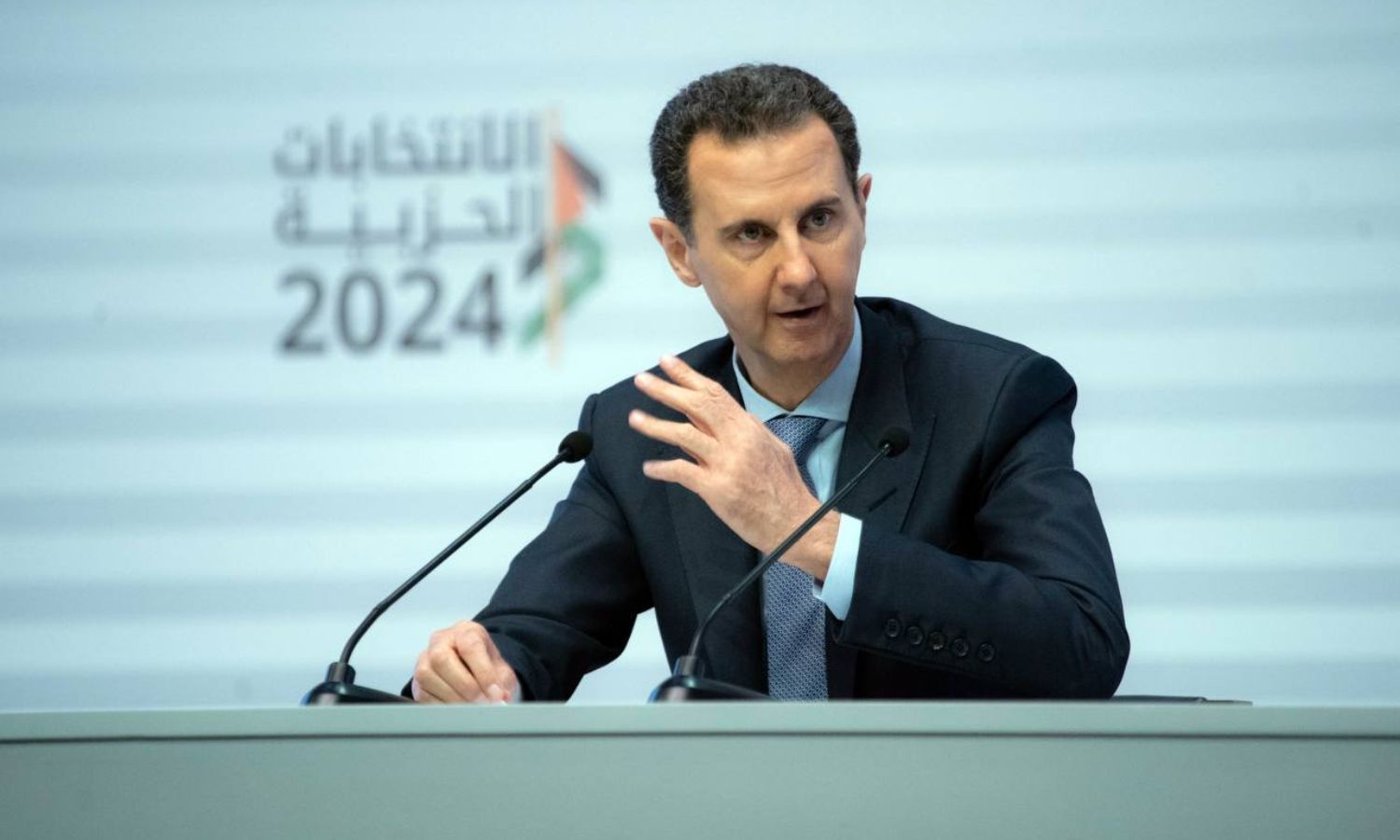



Today, Tuesday, May 7, the Syrian regime’s president Bashar al-Assad issued two decrees that terminated the previous appointments of the new members of the Baath party’s central leadership.
According to the decrees, whose text was published by the official Syrian news agency (SANA), the appointments of the governors of Deir Ezzor, Rif Dimashq, and Hama, as well as the president of the Euphrates University were terminated.
This step came after al-Assad participated in an expanded meeting of the party’s central committee, which resulted in the election of new central committee and leadership members for the party, and al-Assad delivering a speech in which he attacked the Syrian opposition, saying, “We have not heard of the bulls of the revolution who were mistakenly called revolutionaries; we did not hear that they fired a single rocket for the dignity of the people of Gaza, nor did we hear a statement or demonstration with banners supporting them.”
During the expanded meeting, al-Assad was unanimously elected as the General Secretary of the party, and new members of the central leadership consisting of 14 people were elected, including the regime’s Prime Minister Hussein Arnous, Minister of Defense Ali Mahmoud Abbas, and Speaker of the People’s Assembly Hammouda Sabbagh, in addition to selecting central committee members for the party at the provincial level. A new supervision and inspection committee for the party was also elected, consisting of five individuals (including one woman).
Al-Assad discussed the concept of the party’s relationship with power, reviewing the party’s internal system, the role of the central committee as the main nerve of the party and the role of the supervision and inspection committee and the accountability process within the party, and the importance of developing the organizational structure as a party and national need and building the party institution.
On April 15, al-Assad discussed with the central leadership of the party the agenda of the expanded meeting and the formation of specialized committees for the extended meeting, and the best numerical representation of the provinces in the upcoming central committee to overcome the representational imbalance among the provinces according to what the Syrian Presidency reported on Telegram.
The Syrian regime has shown clear interest in the party elections for the current 2024 session, through repeated meetings it held with party officials, amidst talk of changes at a higher level, the effects of which have not been felt by the citizens.
Also, on February 22, al-Assad met a group of Baath thinkers, academics, and writers in a discussion about the future role of the party in Syria, politically, nationally, economically, and socially, stating that the most important aspect of the elections is not the names that win, but rather the broad participation, considering that the election results reflect the decision and desire of the majority at that time, and that a vibrant party looks for quality not quantity, and is concerned with expanding its support base, not just increasing its number of members.
This meeting was preceded by another held by al-Assad on January 27, where he met with members of the High Supervisory Committee on Elections and was briefed on the rounds and meetings that the committee had conducted in branches and provinces over the past days.
He also emphasized that the success of the election supervision experience would build upon future obligations at various party levels that would follow the expanded conference, making this experience part of a “democratic course that must build its transparency and success requirements,” according to him.
Furthermore, al-Assad stressed the independence and absolute neutrality of the committee in supervising the elections and its tasks during all phases of the electoral process from preparation to results on December 24, 2023.
Less than a week prior to this meeting, al-Assad met and discussed with the central committee of the Baath party on December 16, where he spoke about addressing negative aspects in the state and civil society, considering that the party elections are both diagnostic and curative.
These meetings are part of the regime’s promotion of changes in the structure of its authority, “fighting corruption,” and making some changes, without addressing core issues sensitive to the Syrian people, including the issue of detainees and forcibly disappeared persons, which the Syrian Network for Human Rights (SNHR) documents number at 135,253 detainees in the regime’s prisons.
if you think the article contain wrong information or you have additional details Send Correction